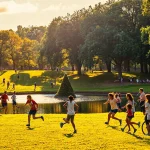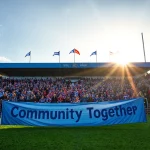Talent Identification and Recruitment Strategies
Identifying and recruiting promising athletes is central to success in UK combat sports networks. Academies employ diverse talent identification and athlete scouting methods to pinpoint individuals with the potential to excel. Often, these strategies begin with grassroots programmes deeply embedded in local communities, which help bridge the gap between raw talent and professional training.
One common approach involves collaborations with schools and local clubs. Through these partnerships, academies can monitor young participants in real-time, assessing their physical abilities, motivation, and adaptability to the combat sports environment. This frontline scouting ensures that promising athletes don’t go unnoticed, even if they start with limited exposure.
In parallel : How do combat sports in the UK foster discipline and self-control?
Selection criteria typically focus on both physical attributes—such as strength, agility, and endurance—and intangible factors like discipline and coachability. UK academies use structured processes combining trial sessions, performance analytics, and psychological assessments to ensure a comprehensive evaluation. This multifaceted approach helps refine the talent identification process, targeting those likely to thrive within competitive combat sports.
The emphasis on grassroots engagement and rigorous scouting exemplifies the robust nature of UK combat sports networks when it comes to nurturing the next generation of athletes.
Also to discover : What Are the Key Benefits of Mixed Martial Arts for Personal Development?
Structured Training and Development Programs
Structured training programs are essential for effective skill development in combat sports. These programs often employ customised training plans tailored to individual athlete profiles, ensuring that each participant progresses at a pace suited to their strengths and areas needing improvement. Personalising routines optimises learning and performance, making skill development more efficient.
Progressive skill-building techniques are a hallmark of reputable academies. These approaches break down complex movements into manageable components, gradually increasing difficulty to build confidence and mastery. By sequencing techniques logically, athletes build solid foundations before advancing to more challenging elements. This step-by-step method fosters consistent improvement and reduces the risk of injury.
Coaching methodologies vary across combat sports, reflecting differences in tradition, philosophy, and competitive demands. For example, striking disciplines may emphasize repetition and timing drills, while grappling-focused sports prioritize positional awareness and leverage. Understanding these distinctions allows coaches to adapt their style, delivering the most effective guidance for their sport. Such adaptability in coaching is crucial for nurturing well-rounded athletes capable of excelling in diverse situations.
Coaching Expertise and Athlete Mentorship
Coaching expertise is a cornerstone in the development of successful combat athletes. The academy’s coaches hold extensive qualifications, combining formal certifications with years of hands-on experience in various UK combat sports disciplines. This blend ensures they are not only knowledgeable about technical skills but also understand the strategic and physical demands athletes face.
Athlete-coach relationships play a vital role in progress. Trust and clear communication create a foundation where athletes feel supported and motivated to push their limits safely. Personalized feedback from experienced UK combat sports coaches helps athletes identify strengths and areas for improvement, tailoring training plans to individual needs.
Mentor support goes beyond technical instruction; it encompasses emotional encouragement and guidance through challenges both inside and outside the ring. This holistic approach fosters resilience and confidence, enabling athletes to thrive in competitive environments. By prioritizing mentorship, the academy cultivates a community where personal growth parallels athletic achievement.
Youth and Grassroots Initiatives
Youth programs and grassroots sports form the cornerstone of early talent nurture in the sporting world. These initiatives focus on engaging young athletes through targeted outreach and development camps that provide foundational skills and foster a passion for sports. By creating accessible platforms at the local level, grassroots sports encourage widespread participation and identify promising talent from an early age.
Partnerships with community sports organisations amplify the reach and effectiveness of these youth programs. Collaborations ensure that resources, coaching expertise, and facilities are shared, making sports more inclusive. These alliances help bridge gaps between schools, local clubs, and larger sports federations, creating a seamless pathway for young athletes to develop.
The impact on long-term participation and athlete retention from well-structured youth programs is significant. By nurturing skills early and keeping young athletes engaged, these initiatives reduce dropout rates and create a steady pipeline of talent for higher competitive levels. Moreover, consistent involvement in grassroots sports promotes physical health, social skills, and a lifelong connection to physical activity, benefiting both individuals and communities.
Holistic Athlete Support Systems
Athlete support encompasses a comprehensive network of services designed to optimize performance and well-being. Central to this are nutrition, sports psychology, and athlete funding, each playing an indispensable role.
Nutrition support involves personalized guidance from nutritionists who tailor diets to enhance performance, recovery, and overall health. Proper nutrition fuels training sessions and competition, enhancing stamina and reducing injury risk.
Sports psychology addresses mental resilience through strategies that manage stress, improve focus, and build confidence. Access to psychological preparation support helps athletes navigate pressure, maintain motivation, and foster a growth mindset essential for peak performance.
Athlete funding is another critical element, providing financial aid, scholarships, and sponsorship opportunities. This support relieves financial burdens, enabling athletes to focus on training without distraction. It also often covers access to physiotherapists and other specialists, integrating physical recovery into the support system.
Together, these elements create a holistic athlete support system that nurtures both the physical and mental aspects of athletic development.
Partnerships, Collaborations, and National Bodies
Partnerships with sports organisations and UK sporting bodies are fundamental to shaping athlete development and competitive success. Collaborations with national governing bodies and sports federations ensure that training standards, competition structures, and funding align with broader objectives for sports growth. These partnerships help streamline pathways from grassroots participation to elite performance.
Academy partnerships play a crucial role in nurturing talent. Working alongside universities, sports institutions, and professional clubs creates a supportive ecosystem where athletes receive holistic development. These collaborations facilitate access to cutting-edge facilities, coaching expertise, and academic opportunities, all essential for balancing athletic and personal growth.
Through coordinated efforts with multifunctional stakeholders, national bodies contribute significantly to athlete pathways. From amateur introduction phases to pro-level competition, these alliances enable aspiring athletes to progress efficiently and sustainably. Thus, synergy among sports organisations, academy partnerships, and UK sporting bodies remains key to evolving the sporting landscape in the UK.
Success Stories and UK-Specific Best Practices
Discovering why the UK stands out in combat sports begins with examining some notable athletes and case studies from UK academies. UK combat sports success stories often highlight champions who demonstrate rigorous training regimes, innovative skill development, and mental resilience fostered in world-class facilities. For example, several fighters from British academies have made remarkable strides in international arenas, illustrating how these institutions nurture talent effectively.
The UK’s approach to combat sports integrates unique techniques and training philosophies, often blending traditional methods with modern sports science. These best practices include precision in skill drills, emphasis on recovery strategies, and psychological conditioning, which have proven crucial for sustained athlete performance. This innovation distinguishes UK academies and has led to the development of specialized programs tailored to different combat styles.
When comparing UK combat sports practices internationally, clear contrasts emerge. While some countries prioritize volume training and high-frequency competition, the UK emphasizes quality and strategic development over sheer quantity. This approach often results in better-rounded athletes who adapt well to diverse opponents. Furthermore, the UK’s collaborative networks among coaches, sports psychologists, and nutritionists create an integrated environment—something less common elsewhere.
Understanding these elements provides insight into the UK’s rising dominance and provides a blueprint for others aspiring to replicate its success in combat sports.






